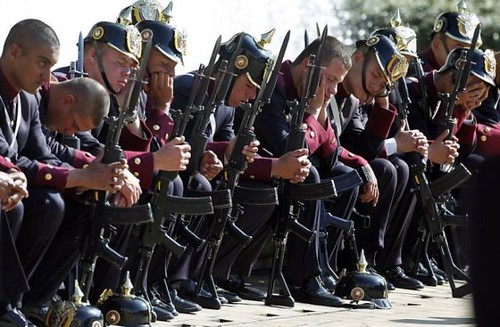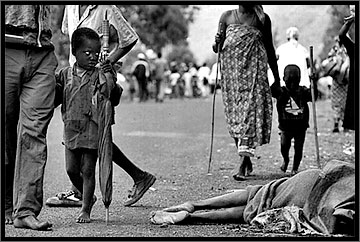Do you seek apologies on occasion? Indeed one could argue that wanting an apology is an act of vengeance. A want for revenge. When one makes an earnest apology they realise they have done wrong and thus feel guilt, humiliation and so forth. If the person sees the apologiser feeling such pain then he feels satisfied and the apology is accepted as genuine. If no such pain is felt by the apologiser then the apology will lack a genuine quality. Thus the person receiving the apology really wants revenge in that the apologiser must feel pain about what they have done.
You hurt me, so I hurt you back probably sums up revenge. I think it would be safe to say this is a natural or Free Child reaction. When someone hurts us there is an initial reaction of wanting to hurt them back. If one observes young children interacting one certainly sees such attitudes and behaviours expressed.

However, as we know just because something is a Free Child reaction does not necessarily mean that it is good for us psychologically, particularly in the longer term. The vengeful Free Child is one thing that many transactional analysts would see in their clients. The client who is endeavouring to come to terms with being badly treated by another whether that be them killing some one you loved or a divorce or someone who simply insulted you.
Many a client will express a desire for revenge of some kind against the offender. Does that psychologically help? It is probably safe to say that for most the actual act of revenge will bring a feeling of some kind of satisfaction at least to some degree. Does that make it therapeutic thing to do?
Maybe revenge is a double edged sword. For instance consider capital punishment. Some people express the view that the execution of the person who killed a loved one does not help you in getting over the whole experience. It does not help you come to terms with the death of a loved one. In some ways it can make it worse or more complicated.

As a therapist of the bereaved I could use the execution to assist in the process of the person working through their reactions but the execution in itself does not assist in the psychological process to health. The client now knows that the offender has been executed. How are they supposed to deal with that?. Are they meant to feel happy, feel that revenge has been done, feel some sadness, feel ambivalent about it. It just adds in another thing that has to be worked through. It complicates matters further.
(Note: I am not arguing the case against capital punishment here. I personally believe it has a place in extreme circumstances)
Consider a more common scenario than an execution which is illegal in this country anyway. Many people at some point in their life can become involved in the legal process as a victim or a loved one of a victim of crime. When that happens the psychology of revenge assumes considerable importance. If not dealt with properly the person will end up worse off, psychologically.

The first trap is the person will redefine revenge in their mind and this is used a defence mechanism. Most people want to see themselves in a positive light and revenge is generally seen as an unattractive or unsightly emotion and behaviour. To avoid seeing self in this unattractive light they lie to themselves. They say, “All I want is for justice to be done”. What does that mean? I would contend that for most justice is really just a nice word for revenge at least to some extent.
It allows the person to see self in a much more positive light and thus defend self against an unattractive self perception. The problem is once such a defence mechanism is employed their feelings become confused and thus not dealt with in a healthy way. The feelings of anger and revenge can’t be dealt with because they are not even recognised in the first place. The person has convinced self they want justice and not revenge.
The first step in counselling such a person is to break down such a defence mechanism thus allowing the true Free Child feeling to be recognised and dealt with. For the person to allow self to see the ‘ugly’ side of self.
Other than that I counsel people to stay as far away from the trial as they can. Leave the country and go on a two week holiday. The goal of a trial is to answer a legal question it is not a therapeutic exercise. The goal of a trial is to solve a legal problem not for anyone to get closure or obtain some other kind of psychological advantage.

Most who follow a trial will end up feeling worse at the end of it because ti has not gone how they wanted. They will feel they have not been able to extract the revenge they wanted and now they feel bad about that as well. They will also probably hear some very unpleasant facts stated that will leave them feeling worse and thus there is more complications to deal with.
The psychological goal is to make the outcome of a trial as emotionally irrelevant as possible. To get to the end of a trial, appeals and so forth can take years. Why psychologically waste those years? Instead, deal with the feelings of anger and revenge in counselling then accept that life sometimes isn’t fair and drop it.
Certainly easier said than done but what is the alternative?
Graffiti
My second "free" child is boy and has 4 years - some claim that is testosterone loaded year - and sometimes he expresses extremely vengeance. Should I be worry?
ReplyDeleteYes Mirko,
ReplyDeleteDevelopmental psychology would usually say that 4 years is a testosterone loaded year for boys.
Should you worry?
Not about him being vengeful. That is a natural Free Child emotion that all children (and adults) have. If he expresses such vengence with violence then that can be a problem.
As he grows he is meant to develop his Parent and Adult ego states. This allows more compassion and empathy in him. This can temper the feelings for revenge and the behavioural expressions of those feelings. But the FC feelings will still remain.
Tony
Thanks Tony,
ReplyDeleteGiven that I have been (sort of) counselling drug addicts and their parents for more than year, I have been concluded that (one of) major reason for mens addiction is bad relationship with theirs father (Please advise this). Therefore, I took one trip a month ago, when my son, my friend and me went to exciting adventure trip for a whole week. Results were amazing. After that, he is much more confident, reliable and even physically stronger. But still vengeance with occasionally violence to older sister is present. Are you saying that these FC aspects will remain whatever, but there is some things (eg empathy from NP) that could take control in critical moments?
Mirko
Hello Mirko,
ReplyDeletethat sounds like a good thing to do with your son and also sounds like he benefitted from it.
FC anger and the desire to express such anger with physical hitting is in us all and will remain until the day we die. The vast majority of people develop an Adult such that the hitting does not happen. For instance, "If I hit him then I will be charged with assault". Then comes the Parent ego state development which says, "I wont hit him because hitting is wrong".
For the vast majority this stops any FC hitting in adulthood. Some people don't develop these for some reason and thus they need to do anger management which means basically developing these two ego states in this way.
Tony